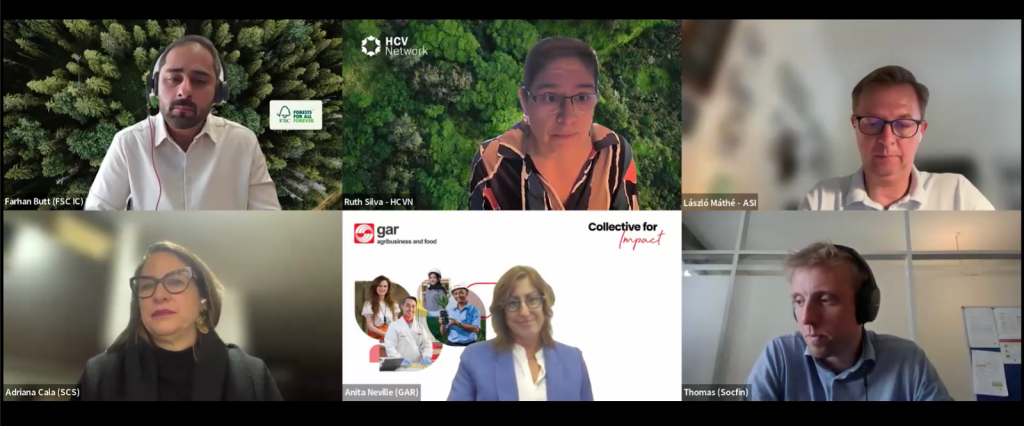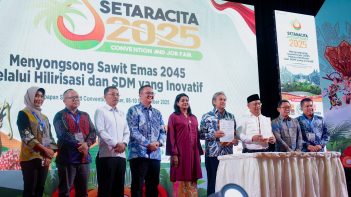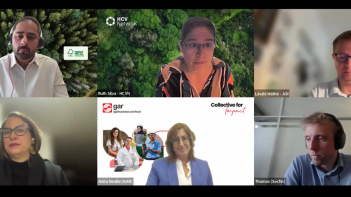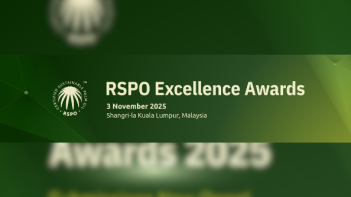
The Roundtable on Sustainable Palm Oil (RSPO) convened its 11th Assurance Forum (AF11) on 23 July 2025, bringing together more than 150 stakeholders in a virtual format to address one of the most pressing issues facing certification schemes today: the global shortage of qualified auditors, particularly in high-need and underrepresented regions.
Themed “Bridging the Global Auditing Capacity Gap, Especially in High-Need Regions,” the forum provided a platform for stakeholders to discuss systemic bottlenecks and explore practical, collaborative solutions to strengthen RSPO’s Assurance System.
A Shared Challenge for the Assurance System
The RSPO Secretariat highlighted growing global pressures on assurance systems due to regulations like the EUDR, higher ESG expectations, and social accountability demands, making audit credibility crucial. Systemic issues like uneven auditor distribution and training bottlenecks are straining delivery. This challenge is common across sustainability schemes. Stakeholders stressed the need for collective action, collaboration, and investment to maintain robust certification.
Key Challenges Identified
Speakers and panellists emphasised the widening gap between audit demand and supply, especially in Africa and Latin America. Factors such as visa barriers, high certification costs, and linguistic diversity compound these gaps, while the aging workforce of auditors and difficulties in attracting new talent intensify the challenge.
“The available capacity of qualified and experienced auditors across all the relevant geographies, particularly for the RSPO, appears to be in decline.” – Ruth Silva, HCVN
Auditor burnout and attrition also emerged as critical concerns. Consecutive audits with minimal recovery time have led to delays in reporting and, in some cases, lapses in licence validity. Increasingly complex social auditing requirements demand nuanced interpersonal skills that many newer auditors may lack.
“We are human beings auditing standards that are implemented by other human beings. There is an incredible importance in the soft skills around auditing.” – Anita Neville, GAR
“KPIs should focus on process improvement, not zero findings.” – Adriana Cala, SCS Global Services
Practical Solutions and Opportunities
Despite these challenges, the forum generated a wide array of potential solutions:
- Capacity building and retention: expanding regional and online training, partnering with universities, improving work-rest cycles, and targeted recruitment of female and local auditors.
- Audit quality and integrity: standardising how non-conformities are written, introducing pre-closing review meetings with clients, and reforming members’ KPIs to focus on continuous improvement rather than “zero NCs.”
- Process efficiency and technology: adopting risk-based surveillance cycles, moving part of documentation review off-site, and exploring technologies such as prisma, AI-driven analysis, and worker-voice tools to support, but not replace, field audits.
- Cross-scheme Collaboration: Leveraging auditor qualifications from other sustainability standards, streamlining CB accreditation where overlaps exist, and aligning expectations across ISEAL schemes.
- Governance and system reform: consistent training and risk-based practice, adjusting audit durations to reflect workforce and community complexity, and redistributing costs through RSPO’s Shared Responsibility mechanism.
“Risk-based, guided surveillance audits could ease burdens while ensuring critical issues are addressed.” – Thomas Lavreys, Socfin
“When risk is high, we must do more: targeted measures, unannounced visits, and extra due diligence are essential.” – Farhan Ahmad, FSC
“The system should be about continuous improvement… punitive measures are not always aligned with that.” – László Máthé, ASI
A Collective Effort
The Assurance Forum reaffirmed that addressing capacity constraints requires collective efforts across the RSPO system. As Ruth Silva (HCVN) highlighted in her opening remarks, “There is a very high level of expectation in terms of credibility, and audits and auditors are at the core of delivering on this expectation.”
By the end of the session, stakeholders concluded that RSPO must move from audit-by-audit fixes to strategic, system-wide reforms that build resilience and credibility in its assurance framework.
A full summary of the discussion and solutions can be accessed here: Read the full report.
Keep reading

Translations of the 2024 RSPO Standards Now Available
RSPO accepted in the Netherlands as a private control system for EUDR

RSPO x JaSPON Conference and Member Engagement Forum 2025 Spotlights Japan’s Sustainability Success and Market Growth
Call for Expression of Interest: Independent Investigation of a Complaint
Call for Expression of Interest: Mexico National Interpretation Task Force for 2024 RSPO Principles and Criteria (RSPO P&C) and Independent Smallholder (ISH) Standard

RSPO–APKASINDO Partnership to Boost Inclusive Growth, Certification, and Market Access for Oil Palm Smallholders

Open Letter to COP30 President: Integrating Forests and Biodiversity: A Policy Central to Paris Agreement Success

Bridging the Auditing Divide: Key Takeaways from the RSPO Assurance Forum 11





